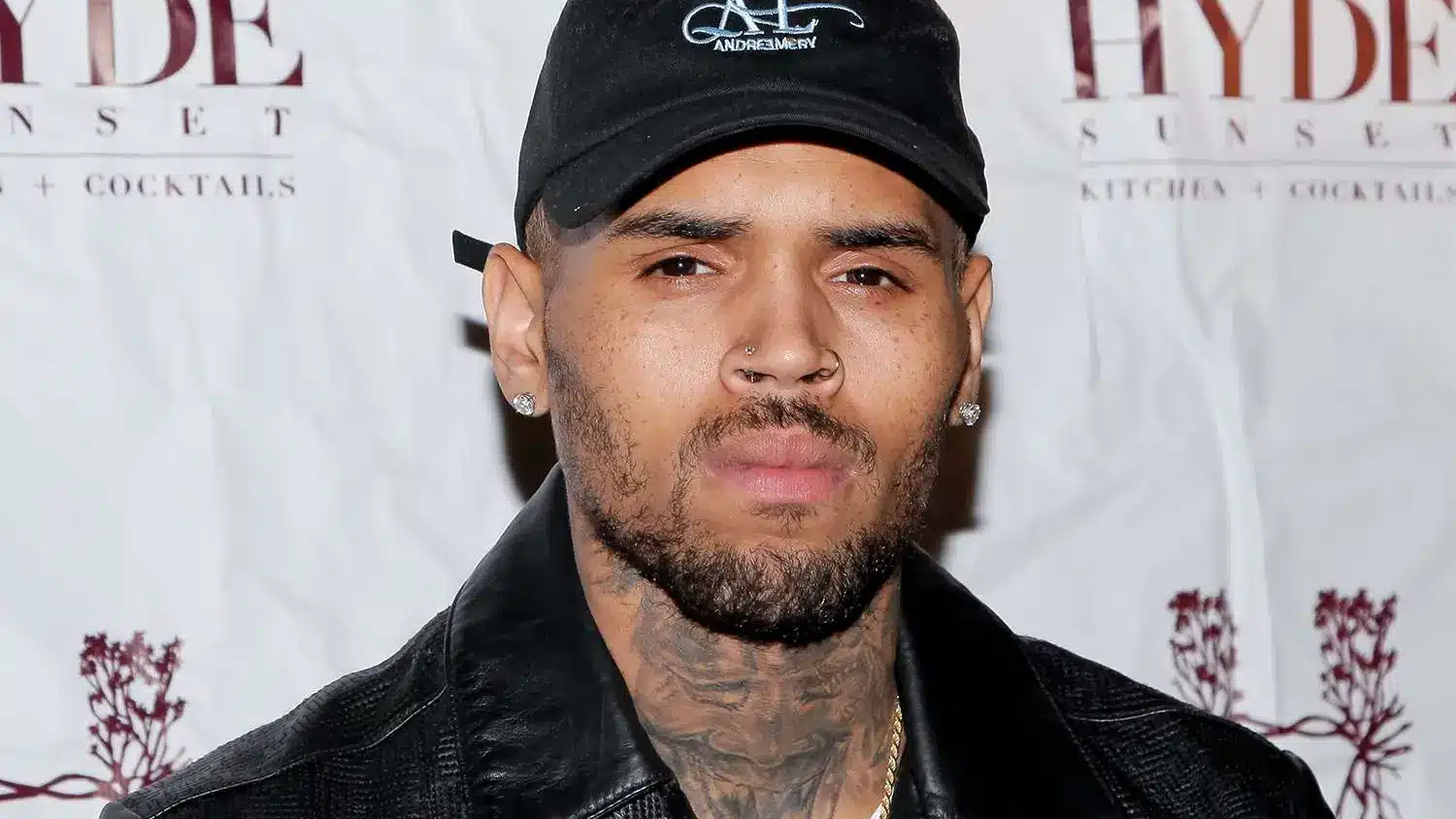Table of Contents
Chris Brown Secures £5 Million Bail in London Assault
Chris Brown’s release from jail in London after securing an unprecedented bail accounting for £5 million highlights the turning point in the ongoing legal fight against a 2023 nightclub assault accusation. The singer, who has been named as the perpetrator of an “unprovoked attack” that led to severe injuries, has not replied to the charges yet. Due to the bail agreement being one of the highest ever in UK celebrity history, Brown can go through with his musical activities and make a global tour, which will continue until the trial. The decision was taken on the grounds of the seriousness of the charges as well as the court’s knowledge of the singer’s professional commitments.

According to professional opinions in law, such an overly high-security bond has got its eye on not only keeping an eye on the justice process but also facilitating the singer’s international working duties. Despite facing serious assault charges, Chris Brown received judicial approval to launch his 35-city “One of Them Ones” world tour, beginning June 8 in Amsterdam. The court imposed strict conditions, including weekly location updates to UK authorities and a £5 million security deposit forfeitable if Brown violates bail terms.
Such a rare concession brings to the surface the conflicts between legal responsibility and professional redemption, during the singer’s rehearsal for his first European shows since 2019. The European tour of the singer includes such giant venues as Amsterdam’s Ziggo Dome, with stadium dates in North America to be held in July. Naysayers say that the judgment is an example of the fact that the laws no longer apply to celebrities, while true fans see it as a way for Brown to restore the trust of the public. The decision sets a precedent for how courts handle artists entangled in international legal disputes.
Absentee Hearing Sparks Legal and Ethical Debates
Brown’s absence from his bail hearing at Southwark Crown Court ignited controversy, with the singer opting to stay in the U.S. for tour rehearsals. Prosecutors condemned his non-appearance, stressing the gravity of the alleged assault, while his defense team emphasized his cooperation via virtual meetings and a clean legal record since 2016. The court mandated no contact with the accuser and strict travel monitoring, reflecting concerns about accountability.
Securing the £5 million bail required Brown’s team to pledge future tour earnings and property assets, revealing the financial stakes of his comeback. Insurers now cover over £20 million in potential liabilities, reflecting risks tied to tour cancellations or legal disruptions. Among the challenges to be dealt with is a 12-member security team, the employees going through obligatory compliance training, and the protests which are set to take place at the various points of the venue. Disregarding the turmoil, the first game in the 17,000-seat stadium in Amsterdam was sold out very quickly, indicating that the fans’ support is still constant. Safety measure costs have skyrocketed, and legal requirements became stricter, and organizers budgeted for the protests to happen. The success of the pandemic is largely dependent upon Brown’s ability to focus on both the case and the public’s judgment.
Polarized Public Reactions and Advocacy Backlash
The bail decision triggered fierce debates, with domestic violence groups protesting outside courthouses and fans rallying behind #FreeChris campaigns. Streaming platforms reported a 214% spike in Brown’s music plays post-announcement, highlighting his resilient fan base. Critics argue the case perpetuates a harmful narrative that wealth outweighs accountability, while supporters celebrate his artistic resilience. Mental health advocates cautioned that making light of mistakes by celebrities is not a good thing and insisted on the necessity of uniformity in observance of laws. On the other hand, the prosecutors of the purported victim were against the judgment and characterized it as a setback for those who have experienced a sexual assault. The oppugnant reaction has disclosed even more clashes of the society issues on fame, responsibility, and transformation in the #MeToo period.
Brown’s tour faces potential disruption as preliminary court hearings may clash with key performance dates. His lawyers have requested virtual court appearances during the European leg, a petition currently under judicial review. If denied, Brown risks forfeiting bail or canceling shows to attend hearings in person. The singer’s ability to balance legal obligations with tour demands will test his team’s crisis management skills. Industry analysts speculate that prolonged legal battles could derail the tour’s momentum, affecting sponsorship deals and fan engagement. With £5 million and his career reputation at stake, the coming months will determine whether Brown can sustain his comeback or face irreversible professional fallout.
Renewed Legal Challenges
During a May 15th arrest in Manchester, England, pop R&B vocalist Chris Brown faced further legal troubles arising from an ongoing 2023 nightclub assault investigation. Law enforcement officers took the singer into custody at a tour stop in Europe, thus drawing the media’s attention to the aforementioned accusations. The police alleged that Brown battered music producer Abe Diaw at London’s exclusive Tape Nightclub in February 2023. The accused reportedly struck the victim with a tequila bottle more than once and then further attacked him by kicking and punching while he lay on the ground. The event, caught on video, appears to have lasted just under two minutes, but the security personnel decided to step in only after the bystanders informed the management.
Diaw’s filing of the lawsuit only emerged months later in October 2023, elicited much public attention as he described the incident being the cause of his permanent facial scarring as well as emotional injury. The Tape Nightclub incident unfolded during a private industry event celebrating Brown’s then-upcoming album release. Witnesses claim tensions flared when Diaw, known for collaborating with UK grime artists, approached Brown’s table to discuss potential collaborations.
Court documents allege Brown reacted violently after mishearing a comment about his musical style, grabbing a Don Julio 1942 bottle from the VIP table. The civil lawsuit describes three separate bottle strikes to Diaw’s head, followed by coordinated attacks from members of Brown’s entourage. Metropolitan Police confirmed recovering the broken bottle as evidence, with forensic tests matching Brown’s fingerprints to the weapon. Diaw’s medical records show he required 27 stitches and suffered a fractured eye socket, injuries that temporarily halted his production career.
$50 Million Texas Concert Assault Lawsuit
Adding to Brown’s mounting legal pressures, four concertgoers filed a $50 million civil suit in July 2024 alleging brutal backstage assaults following his Fort Worth, Texas, performance. The plaintiffs claim Brown and 7-10 crew members attacked them without provocation after a fan complimented his show. Security camera footage reportedly shows the group being dragged into a restricted dressing room area, where the beatings allegedly occurred over 15 minutes. One victim’s hospital records reveal broken ribs and a traumatic brain injury, while others describe permanent hearing loss from head trauma. The lawsuit accuses Brown’s team of deleting venue surveillance footage and intimidating witnesses – charges his legal team vehemently denies. Legal experts note this case could have severe consequences given Texas’ stringent civil liability laws.

These latest incidents extend Brown’s well-documented history of violence-related legal issues dating back to his 2009 assault on then-girlfriend Rihanna. Court records show at least 15 physical altercation allegations across six countries since 2013, though most resulted in settlements or dropped charges. The timing proves particularly damaging as Brown attempts to rehabilitate his image through philanthropic work and parenting-focused social media content. Industry analysts observe canceled sponsorships and reluctant venue bookings since the Manchester arrest, with several European festivals quietly removing him from 2025 lineups. Meanwhile, streaming data reveals a 40% drop in his catalog plays following the Texas lawsuit filing, signaling potential fan base erosion.
Legal Strategy and Public Relations Battle Intensify
Brown’s legal team has adopted an aggressive defense strategy, filing motions to dismiss both the London and Texas cases based on alleged evidence tampering and biased witnesses. They particularly dispute the Texas timeline, presenting cellphone geolocation data placing Brown at a hotel during the alleged backstage incident. Concurrently, publicists have launched a rehabilitation campaign highlighting Brown’s charity donations and custody arrangements for his two children. However, victim advocacy groups counter these efforts with nationwide protests, including projected messages at his concert venues reading “Accountability Before Entertainment.” The dual-front battle – both in courts and public opinion – presents unprecedented challenges for the embattled star’s career trajectory.
The Manchester arrest triggers complex jurisdictional issues, as UK authorities seek to extradite Brown post-tour for formal charges – a process complicated by his American citizenship. Legal scholars warn conviction in the London case could result in a five-year prison sentence under UK assault laws, while the Texas civil suit’s punitive damages might exceed policy limits of Brown’s liability insurance. Tour insurers have reportedly tripled premiums, requiring $25 million escrow accounts at each venue. As Brown’s team negotiates these hurdles, industry watchers question whether the singer can maintain his prolific musical output while addressing what may become career-defining legal battles. With trial dates pending in three countries, 2025 could prove decisive for Brown’s personal and professional future.



